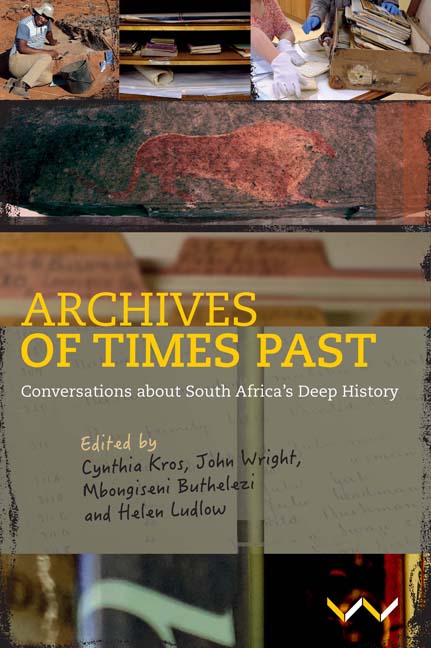Book contents
- Frontmatter
- Contents
- List Of Illustrations
- Acknowledgements
- Editorial Note
- Map
- PART I FIRST THOUGHTS ABOUT THE ARCHIVE
- PART II COMMENTARIES AND CONVERSATIONS
- PART III BECOMING EXPLORERS
- PART IV ENGAGING WITH ARCHAEOLOGY AND ROCK ART
- PART V CONFLICTING OPINIONS
- PART VI FURTHER THOUGHTS
- Glossary
- Contributors
- Index
Chapter 3 - Where Are the Deep Conversations about the Past?
Published online by Cambridge University Press: 26 May 2022
- Frontmatter
- Contents
- List Of Illustrations
- Acknowledgements
- Editorial Note
- Map
- PART I FIRST THOUGHTS ABOUT THE ARCHIVE
- PART II COMMENTARIES AND CONVERSATIONS
- PART III BECOMING EXPLORERS
- PART IV ENGAGING WITH ARCHAEOLOGY AND ROCK ART
- PART V CONFLICTING OPINIONS
- PART VI FURTHER THOUGHTS
- Glossary
- Contributors
- Index
Summary
HISTORY WITHOUT SOCIAL INTELLIGENCE
In this chapter, we discuss why different groups of people in southern Africa have different ideas about what happened in the past before colonial times, and why these ideas are often strongly contested. If we turn back to Nomalanga Mkhize's article in chapter 2, we see that her comments indicate that there are few opportunities for deep conversations about the past in South Africa's schools, and in its universities. To be fair, it is often difficult to have these conversations in classrooms. But Mkhize feels strongly that the kind of history she was taught at school in KwaZulu-Natal in the mid-1990s had nothing to say to her. It was distant, dead; it taught her nothing at all of what was going on in the world around her. This was in sharp contrast to what she told us about her father's history lessons and how excited they made her feel.
She writes that parts of the education that she received at her school were excellent. But when she looks back, she thinks about how she and her classmates were being prepared to be members of an elite. It is a group of people, she says, who have ‘very little social literacy, and who display contempt for the idea of social intelligence’. She is referring to the kind of education that aims to teach students to be ‘cultured’, but in many ways prevents them from gaining the knowledge and skills needed to make meaningful connections with the world in which they live.
Mkhize was at school when the reform of apartheid-era curricula was only just beginning. Twenty years later, the school history curriculum, at least, draws much more of its content from recent work written by academic historians and archaeologists. But Mkhize's words also point to the more recent calls for the ‘decolonisation’ of university education and the teaching of more ‘precolonial’ history. It is clear that one of the feelings behind the student protest movement that took off in South Africa in 2015 is a deep-seated dislike of the university education that students are getting. This education may be very good on some levels, but many students seem to feel that there is little connection between what they learn in the university classroom and their own lives.
- Type
- Chapter
- Information
- Archives of Times PastConversations about South Africa's Deep History, pp. 35 - 47Publisher: Wits University PressPrint publication year: 2022



